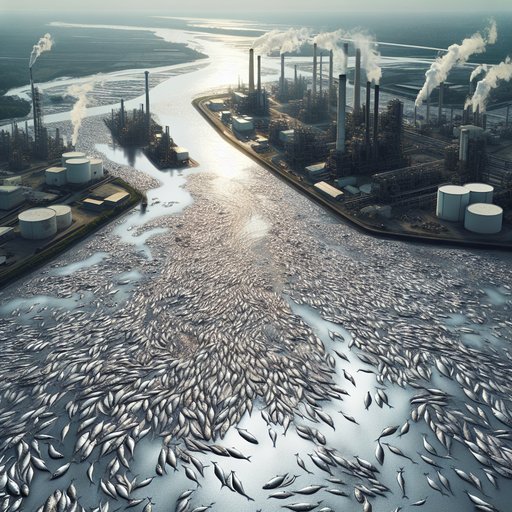
In an era where the environment and societal norms are in constant flux, raising resilient children becomes a vital task. The toxic spill into our rivers is not just an ecological disaster but a reflection of the consumption habits we pass down through generations. As industries continue to externalize costs, the burden falls on ecosystems, leading to a stark silence where once life thrived. Our challenge is to teach our children not only to navigate these complexities but to become part of the solution.
The complexities of the modern world demand that we raise children who are not only aware of their environment but are also equipped to make impactful changes. Anthropologically, societies have historically relied on cultural narratives to guide behavior and stewardship of resources. Across diverse cultures, water spirits and natural deities once reinforced a sense of responsibility and restraint. Today, however, these cultural narratives have been overshadowed by the relentless pursuit of quarterly earnings, leaving our natural environments vulnerable to exploitation and degradation.
Recent events, such as the Pentagon's removing Harvey Milk's name of a navy ship during Pride Month, highlight a shift towards marginalizing diverse cultural narratives that were once recognized and celebrated [1]. This move represents a broader cultural revolution, one that Donald Trump’s era has significantly influenced by bringing back old fashioned norms and trashing values our newer generations already had embraced [2]. The modern shifts in public consciousness were and still are crucial, not only for embracing diversity but also for reinstating forgotten values of ecological stewardship. The extension of Australia’s license for its largest fossil fuel project serves as a stark reminder of the ongoing tension between economic growth and environmental sustainability [3].
These kind of decisions undermine the need for our children to understand the long-term effects of human values, environmental policies and the importance of advocating for sustainable practices. As parents and educators, we must instill a sense of responsibility that transcends immediate economic benefits, encouraging future generations to prioritize restorative justice and ecological balance. Education plays a pivotal role in this transformation. Children must be taught to see beyond the immediate gratification of consumption and recognize the intricate web of consequences that follow.
Integrating environmental science and ethics into our education systems can empower young minds to challenge the status quo. The artistic expressions of figures like Jeffrey Gibson, who blends Indigenous and contemporary art to explore identity and resilience, offer powerful narratives that can inspire this generation to embrace complexity and change [4]. The outrage over environmental disasters must translate into actionable change. Advocacy for ecocide trials, which are slowly gaining traction from theory to courtroom reality, offers a glimmer of hope [n].
By holding corporations accountable for their ecological impact, we can begin to reverse the damage and restore balance. Teaching our children about these legal initiatives can instill a sense of justice and responsibility, encouraging them to become active participants in the fight for a sustainable future. Ultimately, raising resilient kids in a complex world requires a holistic approach that combines cultural awareness, environmental education, and advocacy. By reconnecting with cultural narratives that emphasize restraint and reciprocity, we can guide our children towards a future where ecological and social justice are not just ideals but lived realities.
By fostering resilience, we prepare them to navigate a world of uncertainties and empower them to be champions of change.
Sources
- Pentagon Rings in Pride Month by Renaming Ship Honoring Gay Rights Icon (Rolling Stone, 2025-06-03T20:52:17Z)
- Donald Trump’s Cultural Revolution (Hyperallergic, 2025-06-08T20:00:00Z)
- Australia Extends License for Nation’s Biggest Fossil Fuel Project (Human Rights Watch, 2025-06-04T02:50:54Z)
- Jeffrey Gibson At The Broad: The Mix That Is His Art And His Life (Forbes, 2025-05-30T19:48:05Z)











































